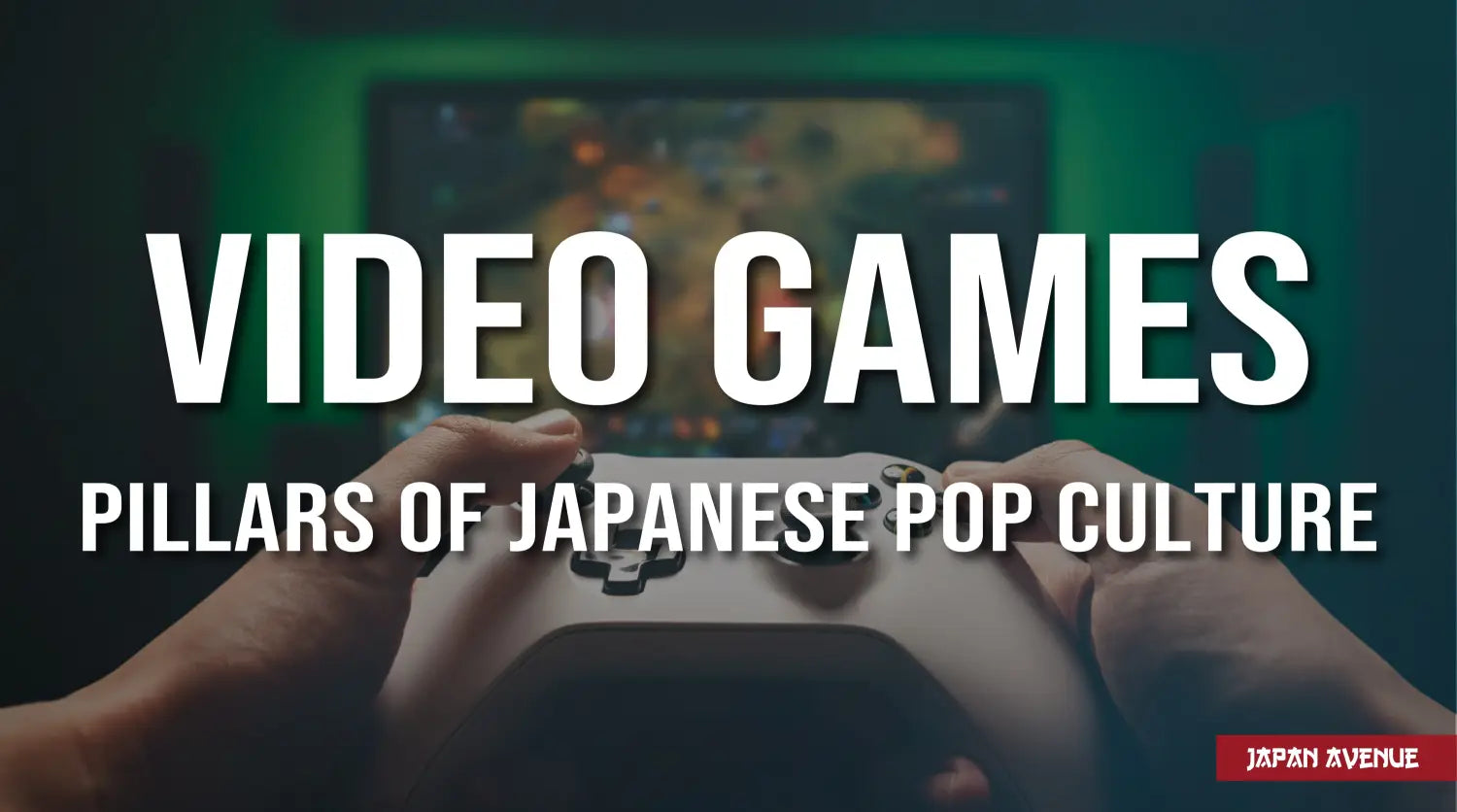Japan, the birthplace of video games, is a must-visit destination for geeks from around the world. As early as the 1970s, the famous Akihabara district made the latest technological innovations accessible to the general public: televisions, computers, and then video games. An ideal breeding ground for the creation of innovative consoles, inventive gameplay, unique graphics, and immersive worlds.
Subsequently, a true nostalgia has developed around this market, as evidenced by the rise of retro gaming.
What are the best Japanese video games? Who are the developers behind all these iconic franchises? Discover how the video game industry has become deeply rooted in Japanese culture and internationally.
The fascinating history of Japanese video games
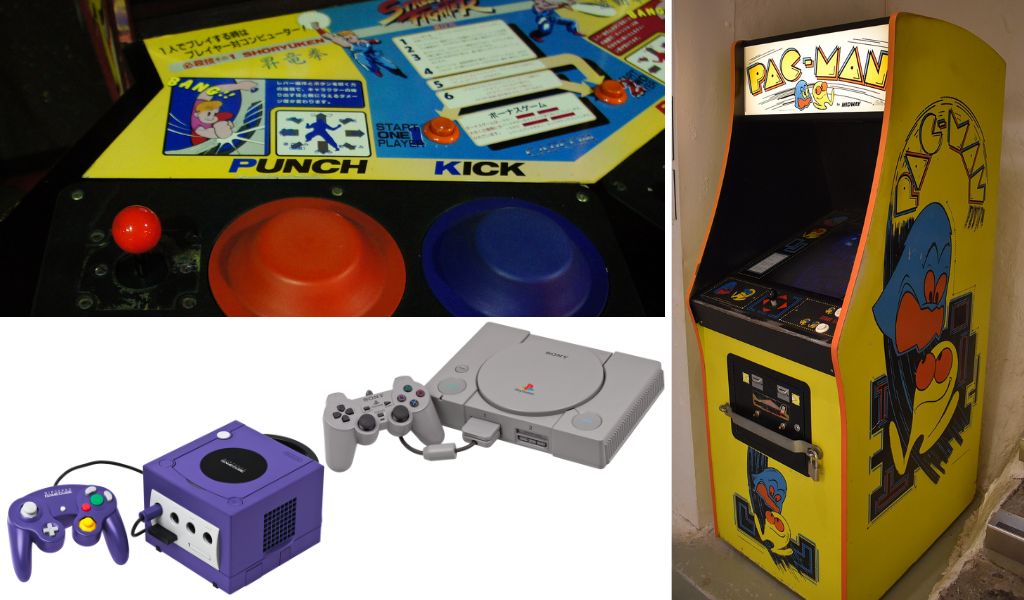
Credits: Wikipedia
Anchoring of Video Game Culture
1970s : Affordable computer and electronic tools were accessible in Japan, allowing engineers to invest in innovation and introduce iconic video games like Space Invaders and Pac-Man, published by Taito and Namco, respectively. These games enjoyed great success in Japan and the West. These two flagship franchises paved the way for the emergence of arcades or Game Centers, which could be found in shopping malls or cinemas. Players could try their hand at shooting games and participate in frenzied races. Esports arrived during this era with competitions centered around Space Invaders, the first shoot'em up.
The Japanese government also encouraged the growth of this industry by promoting innovation and offering subsidies to video game publishers.
1980s : Arcades thrived and evolved with the times. They became genuine gathering and socialization spots for gamers. Players could now enjoy more sophisticated franchises, including fighting games like Street Fighter. Video game enthusiasts began acquiring specialized magazines containing reviews and tips. This marked the birth of the otaku culture! This captivating universe became an essential societal phenomenon.
1990s : More complex role-playing games (Dragon Quest, Final Fantasy) were developed by Square Enix. Graphics became more elaborate, and gameplay diversified significantly. Players now had thrilling quests to complete, could choose their characters, and face formidable end-level bosses. Gaming consoles like Sony's PlayStation entered the market and captivated audiences worldwide.
2000s : The emergence of mobile games, online MMORPGs, growing popularity of RPGs (Persona, Kingdom Hearts), fighting games (Tekken), and music games. The rise of next-generation consoles like Microsoft's Xbox and Nintendo's GameCube. Game libraries expanded and emphasized quality.
Today, Japan continues to be a leader in the video game industry with legendary titles such as Monster Hunter and Pokémon, as well as innovative consoles like the PlayStation 5 and Nintendo Switch. Arcades have evolved to offer more immersive gaming experiences with virtual reality and online gaming.
Origines et succès de Nintendo
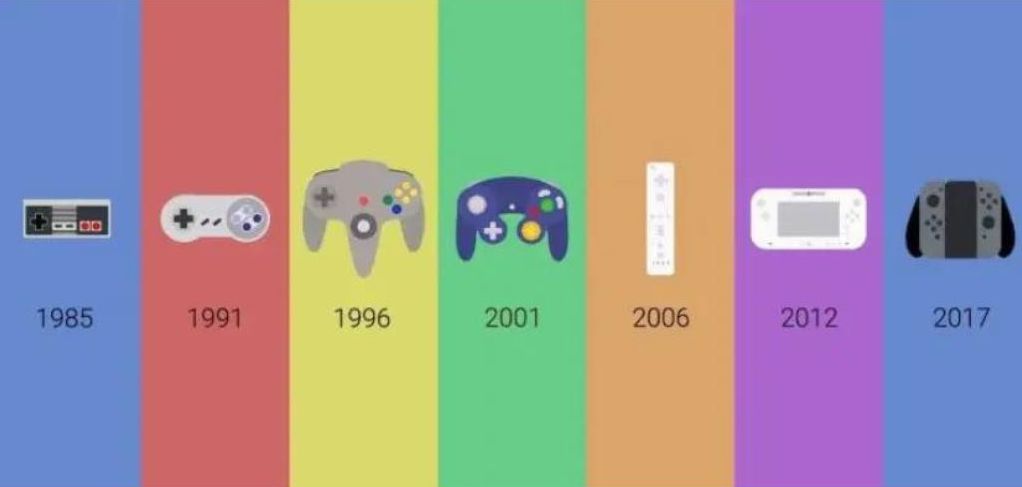
Credits: Medium.com
Nintendo has been at the forefront of significant revolutions in the video game industry: game cartridges for the NES, portable gaming with the Game Boy, motion sensing with the Wii, hybrid consoles with the Switch, and outdoor augmented reality with Pokémon GO. This Japanese company, founded in 1889, has also created some of the most iconic characters, such as Mario, Link, and Pikachu. In 2023, fans of all generations even got to experience Super Mario Bros. in a movie theater!
1980s : The first gaming console, the Famicom (or NES), was introduced. It achieved immense success thanks to games like Super Mario Bros., The Legend of Zelda, and Metroid. Many pioneering motion-sensing technology accessories were introduced during this time, including the Power Glove and Light Gun.
1990s : The launch of the Game Boy and its derivatives: Game Boy Color and Game Boy Advance. The Nintendo 64, with its 3D graphics and a game controller featuring an analog joystick, revolutionized the industry.
2000s : The invention of the GameCube, appreciated for its design and online features. The commercial success of the Wii in 2006, thanks to motion sensors and revolutionary gameplay that could be enjoyed with family.
2010s : The launch of the Wii U in 2012, equipped with an integrated touchscreen. As this console didn't quite resonate with the audience, Nintendo doubled down and introduced the Nintendo Switch in 2017. It featured detachable controllers, allowing it to be used at home on the TV or on the go. It gained immense popularity among gamers, and the gamble paid off!
Cult Japanese Video Game Personalities and Games
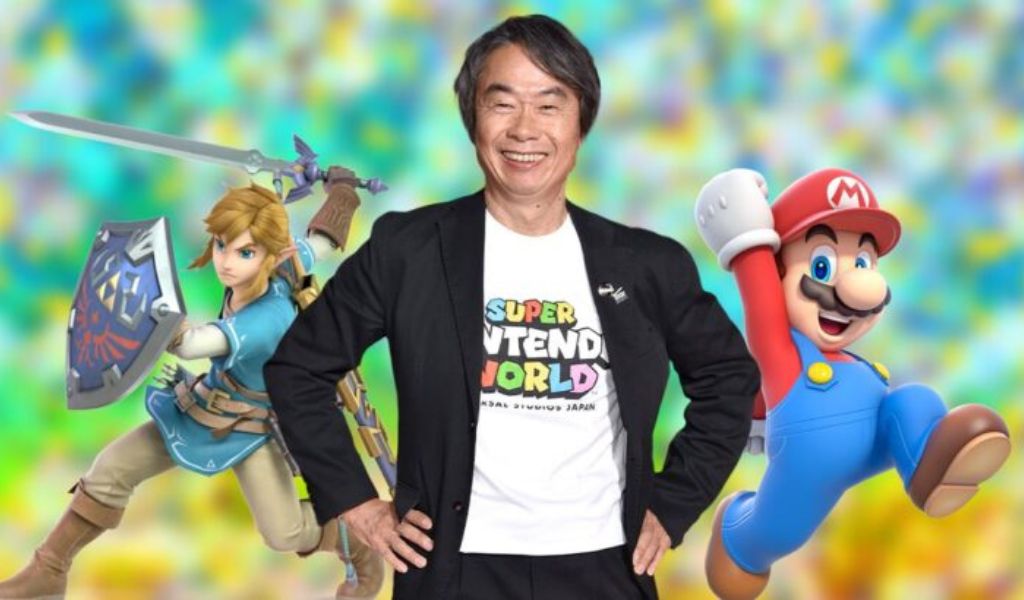
Shigeru Miyamoto. Credits: lacremedugaming.fr
Introduction to the Top 10 Game Developers
1. Shigeru Miyamoto : The most famous and influential Japanese video game developer of all time. He introduced franchises such as Super Mario Bros., The Legend of Zelda, Donkey Kong, and Pikmin.
2. Hideo Kojima : Creator of the legendary Metal Gear series.
3. Yuji Naka : The mind behind the Sonic the Hedgehog franchise.
4. Hideki Kamiya : Known for designing the Devil May Cry series.
5. Satoshi Tajiri : Founder of Game Freak. Renowned for creating the lucrative world of Pokémon, drawing inspiration from his childhood passion for collecting insects.
6. Hironobu Sakaguchi : The author of the renowned RPG franchise Final Fantasy.
7. Tetsuya Nomura : Worked on the Final Fantasy series and was instrumental in creating the Kingdom Hearts franchise.
8. Shinji Mikami : The mastermind behind Resident Evil. He also contributed to other games like Dino Crisis and Vanquish.
9. Takashi Tezuka : Collaborated with Shigeru Miyamoto on numerous Mario games, including Super Mario Bros., Super Mario World, and Super Mario 64.
10. Masahiro Sakurai : Created the Super Smash Bros. franchise and the NES game Kirby's Dream Land.
Top 10 Most Famous Japanese Video Games
1. Pac-Man : Namco, 1980. Iconic arcade game. One of the earliest major commercial successes.
2. Super Mario Bros. : Nintendo, 1985. This platformer is one of the best-selling and most influential products of all time.
3. Final Fantasy VII : Square Enix, 1997. Acclaimed role-playing game for its storytelling, characters, and gameplay.
4. Street Fighter II : Capcom, 1991. World-famous fighting game.
5. The Legend of Zelda : Nintendo, 1986. Action-adventure game known for its compelling story and music.
6. Metal Gear Solid : Konami, 1998. Stealth game recognized for its complex plot, characters, and innovative gameplay.
7. Sonic the Hedgehog : Sega, 1991. Iconic fast-paced platformer from the rivalry era between Sega and Nintendo in the '90s.
8. Dragon Quest : Square Enix, 1986. A role-playing game that achieved massive commercial success in Japan and inspired many similar games.
9. Resident Evil : Capcom, 1996. Survival horror game that popularized the genre and became a successful franchise.
10. Pokémon : Pokémon: Game Freak and Nintendo, 1996. This role-playing game spawned a cultural phenomenon, including video games, trading cards, animated series, and movies.
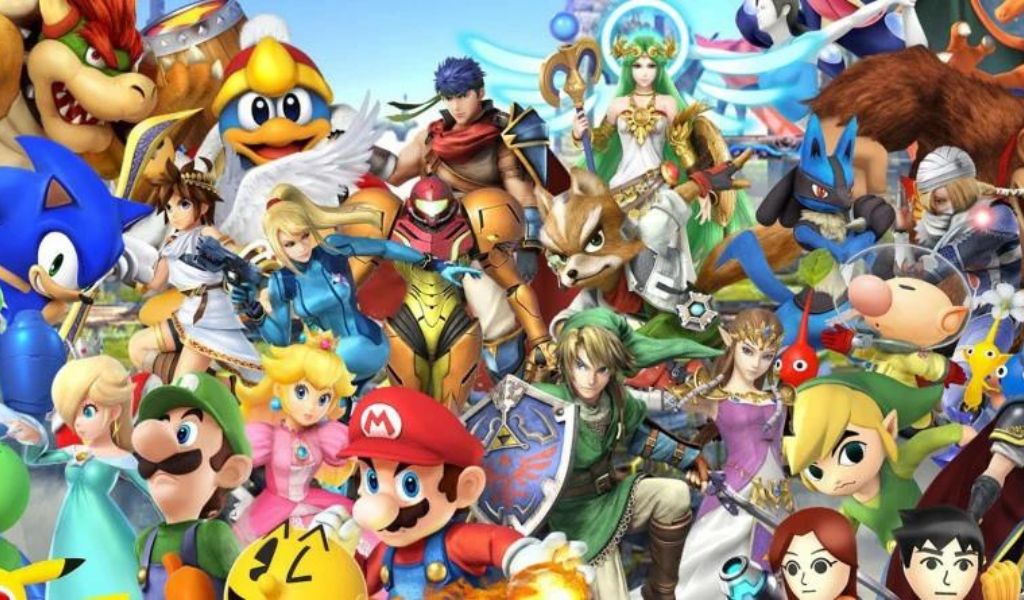
Credits: hitek.fr
The fascinating history of video games began in the 1970s, thanks to a combination of technological, economic, cultural, and governmental factors that allowed developers to create captivating and engaging video games. These Japanese personalities have all had a significant impact on the video game industry by designing iconic franchises and pushing the boundaries of technology and gameplay.
Feel free to read our article "All about Japanese Pop Culture" to continue exploring the subject!

